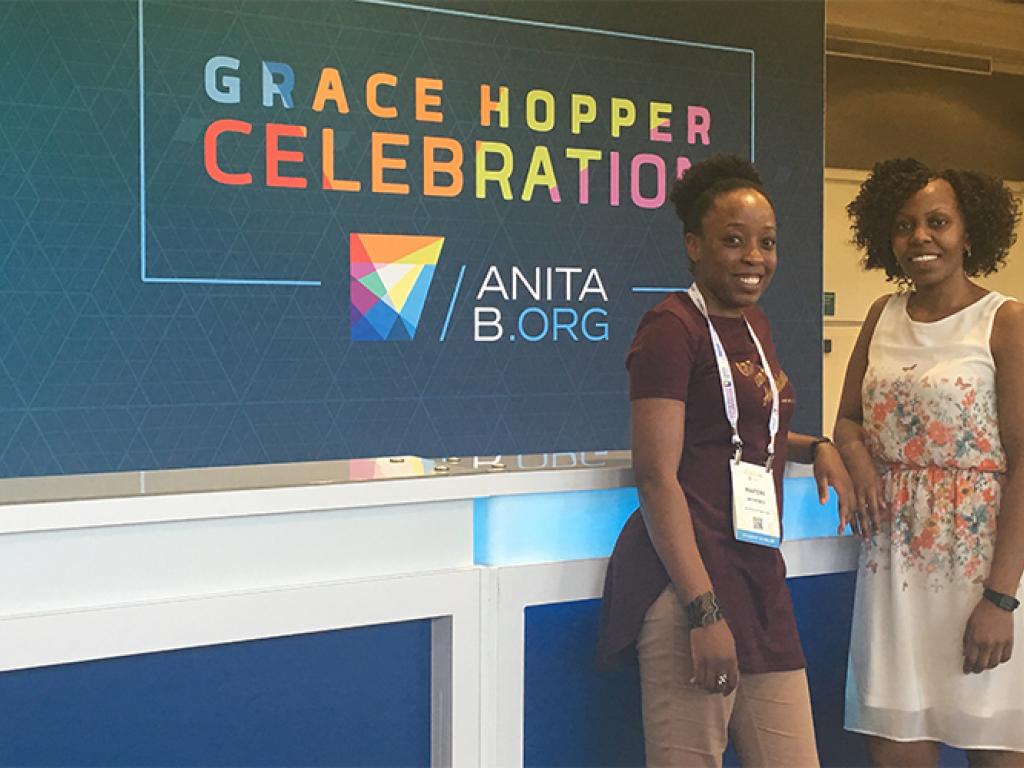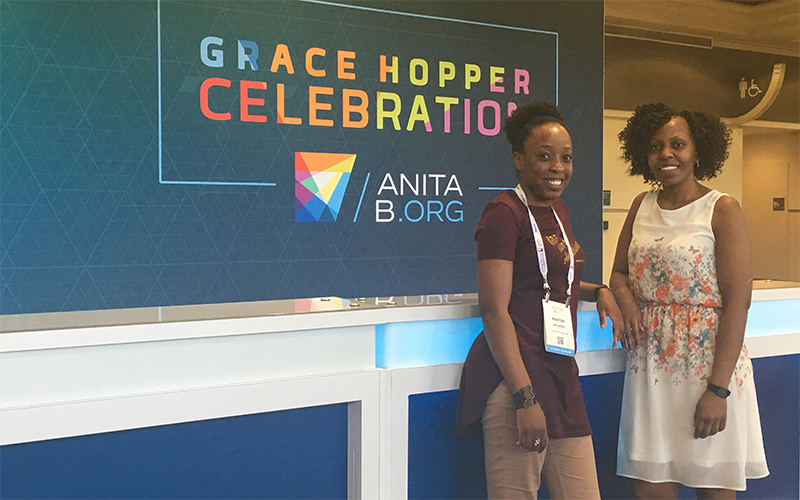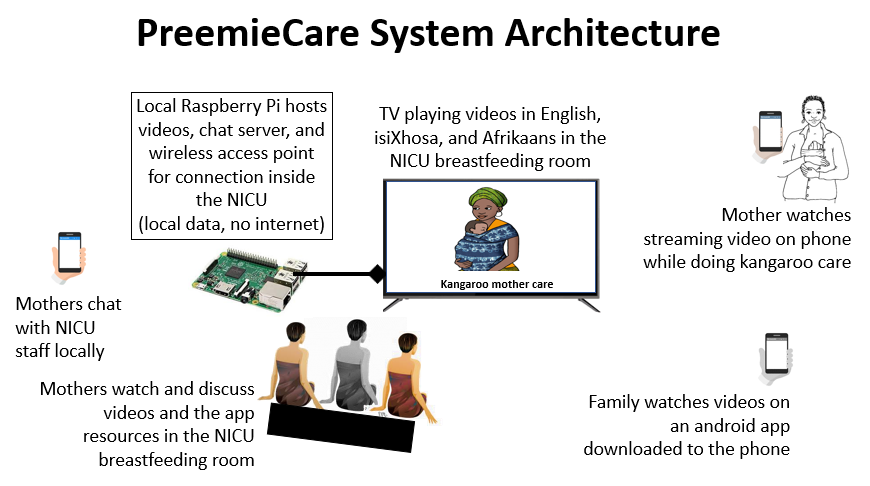Women supporting women at the Grace Hopper Celebration


Post-doctoral researcher Hafeni Mthoko and PhD student Wanjiru Mburu at the 2019 Grace Hopper Celebration
Two researchers with the School of IT’s ICT4D (Information and Communications Technologies for Development) research group were awarded scholarships to attend the 2019 Grace Hopper Celebration (GHC) in Orlando, USA, in October 2019.
GHC is the world’s largest gathering of women technologists with 26 000 attendees from about 80 countries. Post-doctoral researcher Hafeni Mthoko and PhD student Wanjiru Mburu, both with the Department of Computer Science, submitted essays on their research projects and were awarded full scholarships to attend the annual event that aims to support women in technical fields, as well as the organisations that employ them and the academic institutions training the next generation.
Mthoko’s work aims to explore the communicative ecologies of a township community in Cape Town, understanding how people use information and communication technologies (ICTs) to share and access information and the challenges and opportunities that are being uncovered in this process.
“That way we can work with the community to identify solutions for accessing and sharing information better,” says Mthoko.
As part of her work, Mthoko is trying to understand the health communication ecosystem of the township.
“I am investigating the ways in which health information is accessed and shared and that way we can identify opportunities for improving health promotion in the community and also see how mhealth (mobile health) could be better integrated to improve health promotion.”
Mburu’s PhD research deals with human-computer interaction for development (HCI4D) and mobile health fields. Recently she has been developing a ICT platform that provides information to mothers of preterm infants.
To start the process, Mburu volunteered at Groote Schuur’s neo-natal unit as a way to interact with the mothers and find out what their needs are.
“I wanted to see how we could use technology to support them. I didn’t want to come up with the idea – I wanted them to come up with it. Over a period of 18 months they were able to describe what they want,” said Mburu.
The result was an offline-platform and mobile application called PreemieMomCare that uses a Raspberry Pi as a router and access point that allows mothers to access information and videos as well as contact other mothers and health professionals for support.
As part of a co-design process, the mothers, doctors and nurses worked together to come up with the app’s design and then Mburu developed it. The app was deployed in August 2019 and currently over 100 mothers are using it.

GHC allowed Mthoko and Mburu to network with diverse women engaged in a variety of different programmes within the tech and social change space.
“It gave me a platform to spark ideas within me to make a difference in my own environment and to not allow obstacles to consume me,” said Mthoko. “We had diverse topics/talks on career, leadership, artificial intelligence, data science, and women sharing how they overcame challenges in life and work being women in a male-dominated space.”
As a third-year doctoral student, GHC gave Mburu an opportunity to interact with communities that she has seen online that are doing interesting work in ICT. “I attended a session where they were discussing how Raspberry Pi’s are being used in low-income settings, to support the marginalised communities. I also shared how I had used it in the NICU.”
With 26 000 women in one space and a wide variety of topics running in parallel, it was challenging to choose one session over another, but was hugely motivating for the participants.
